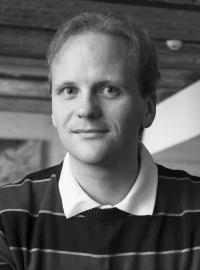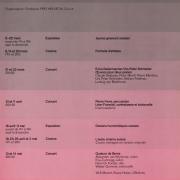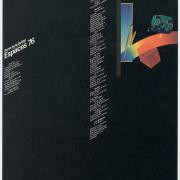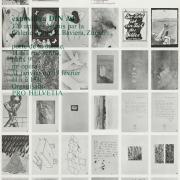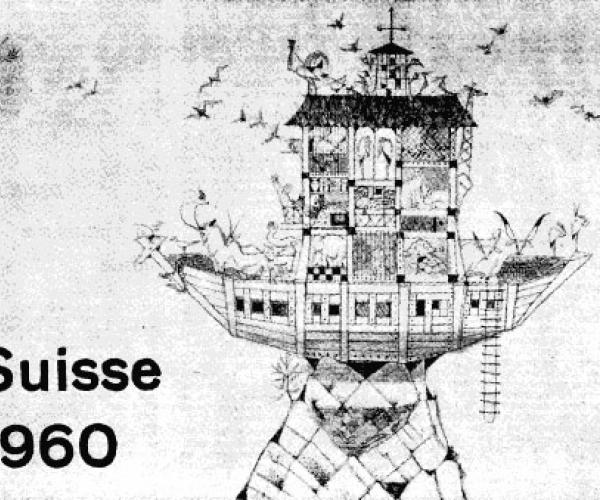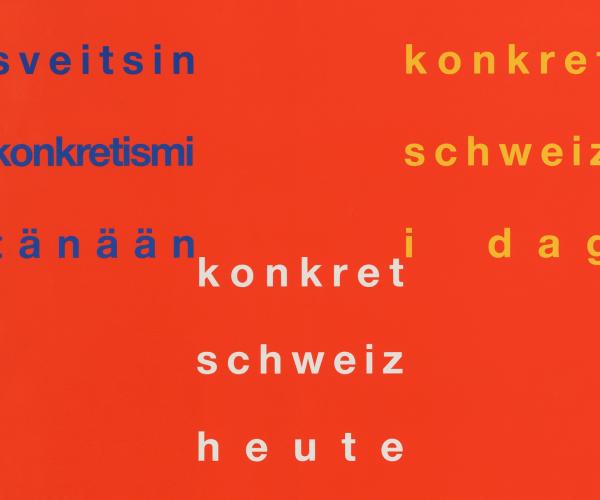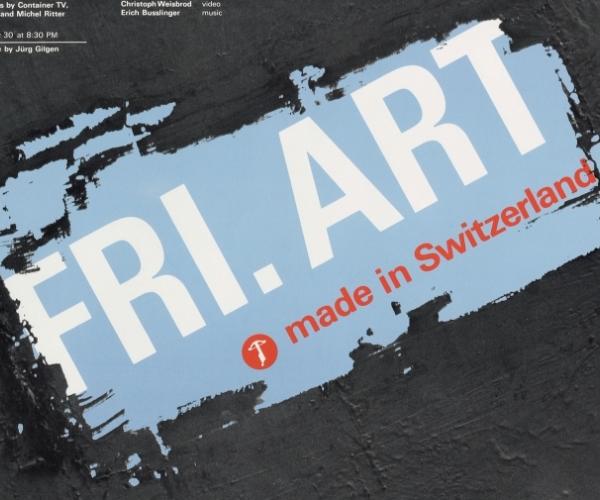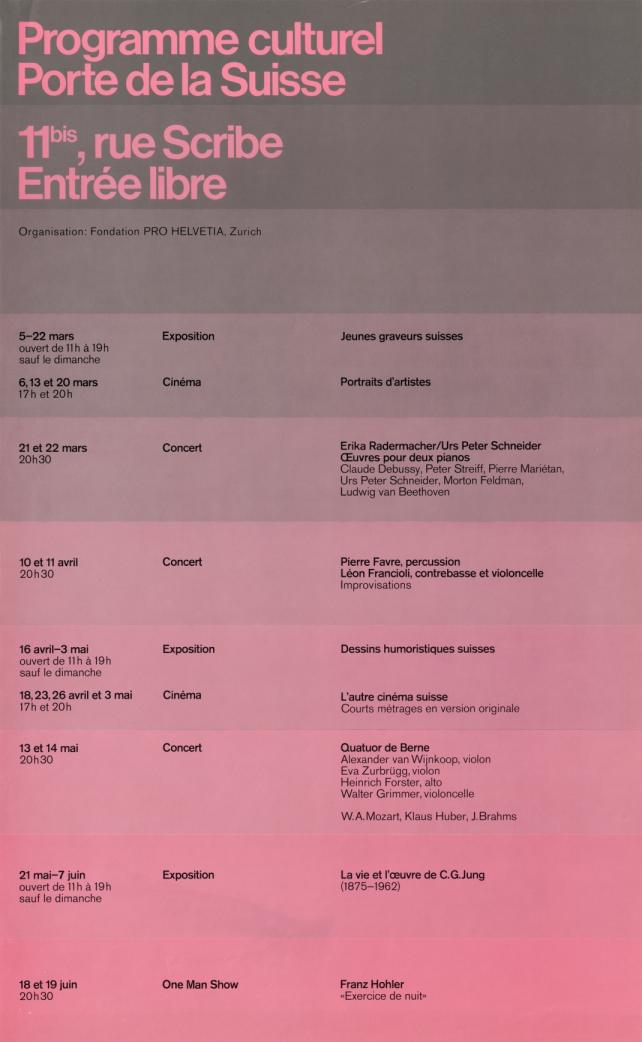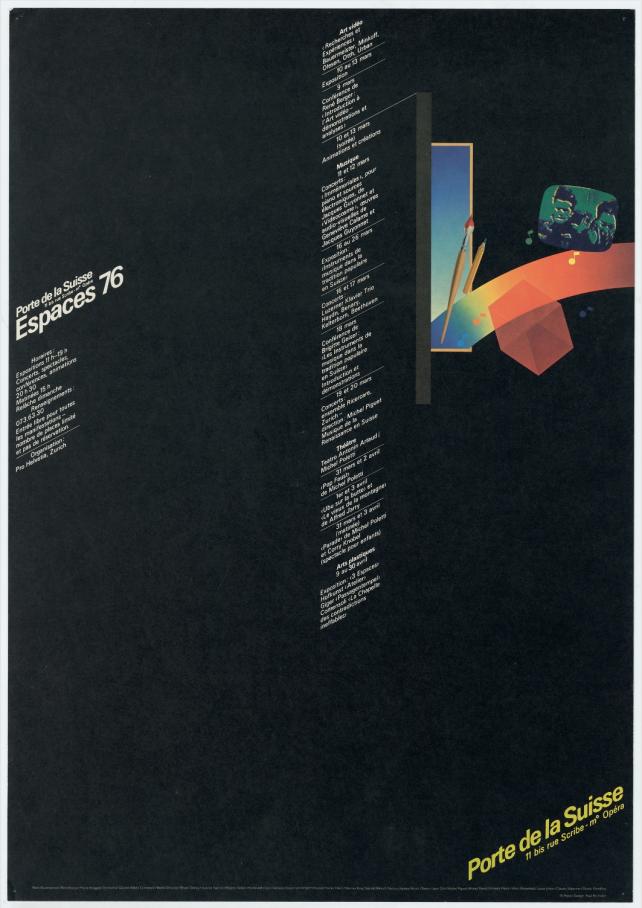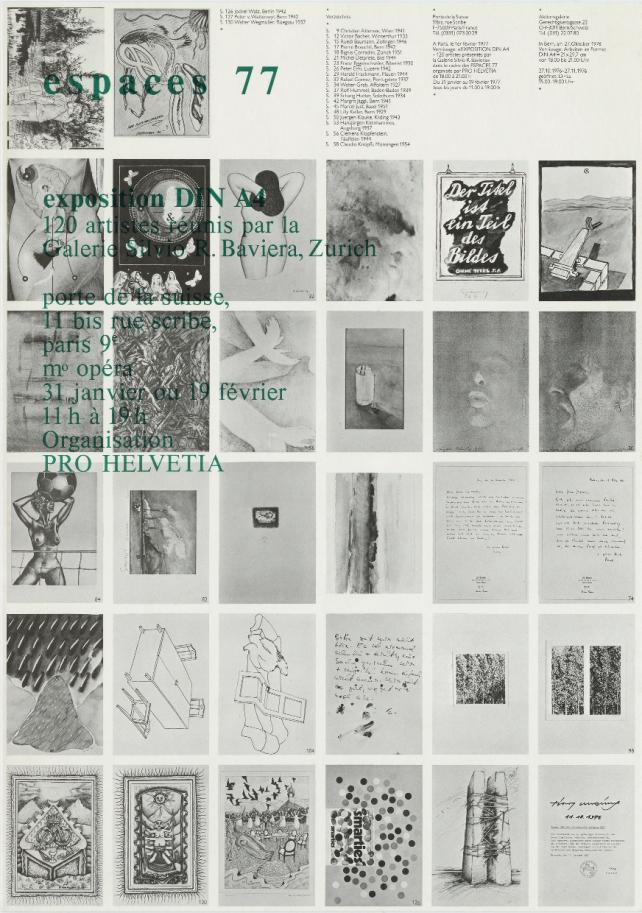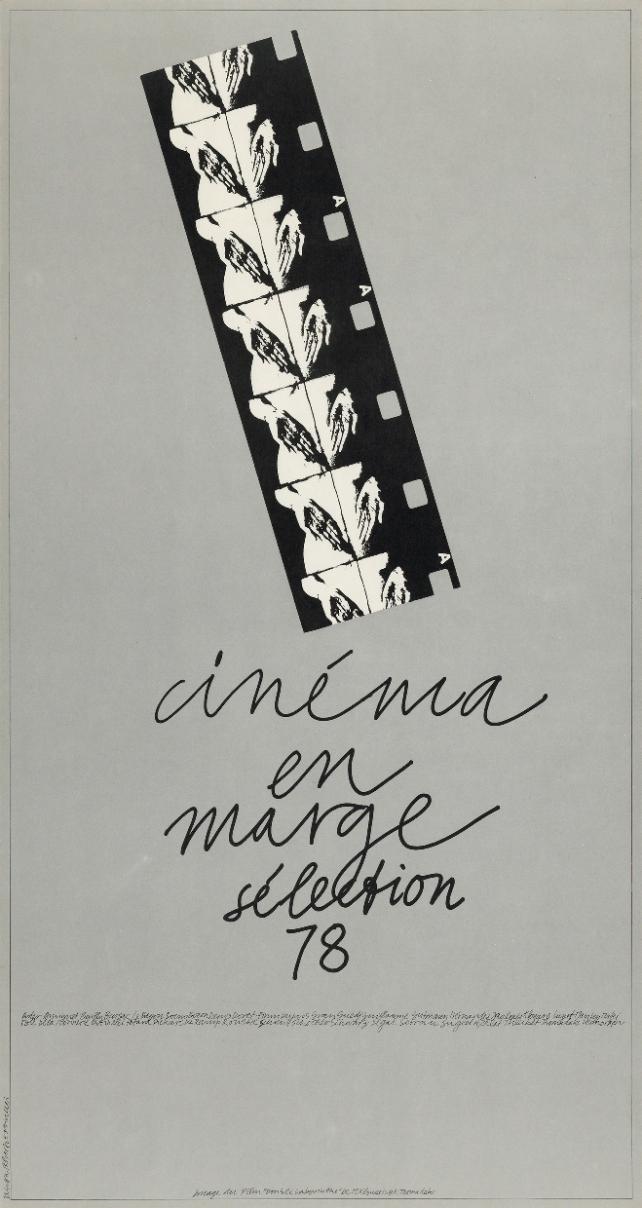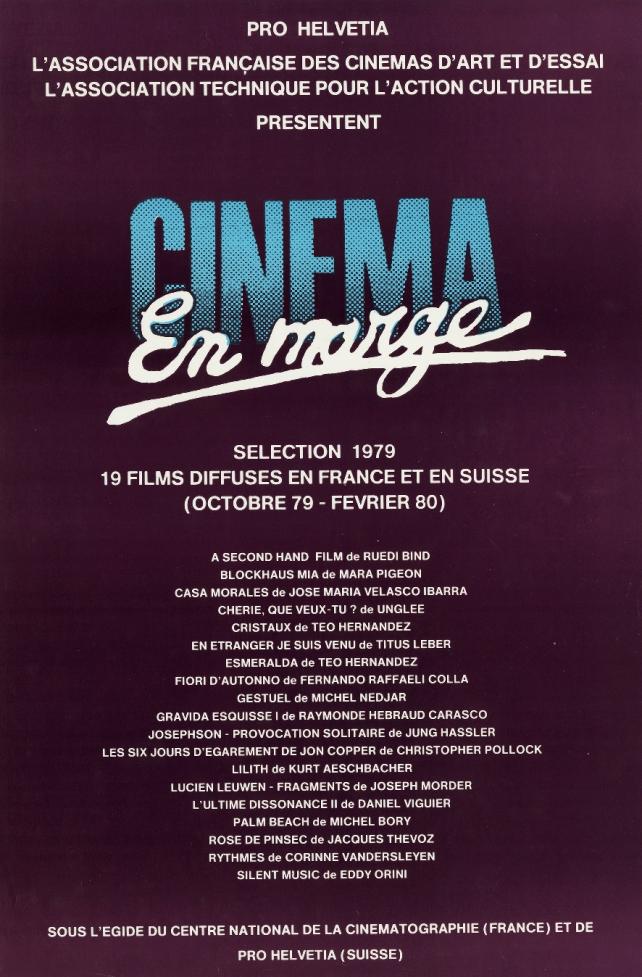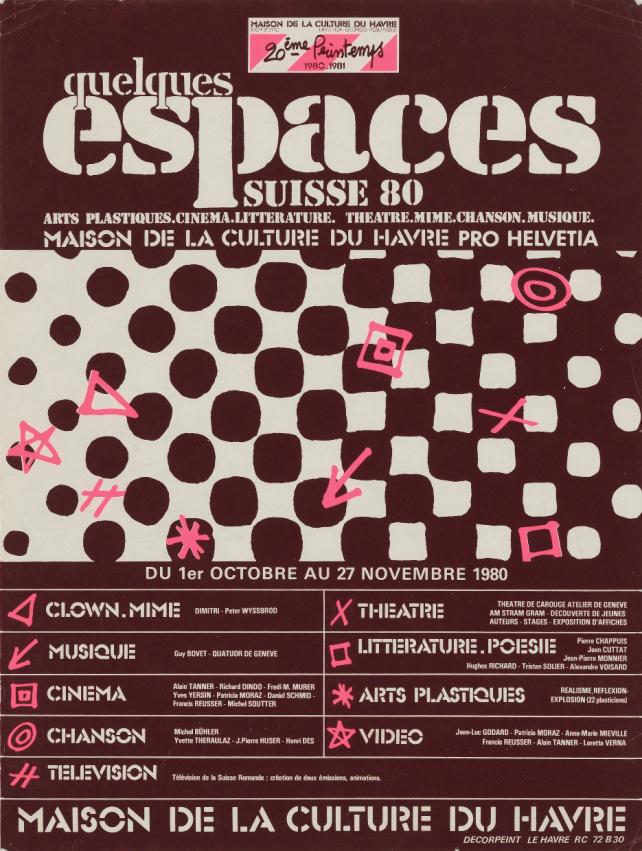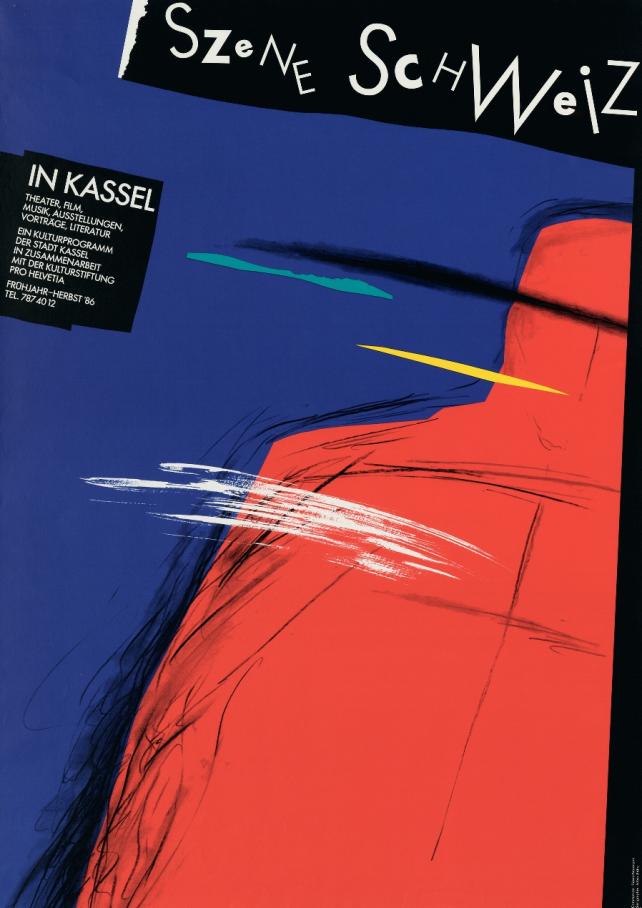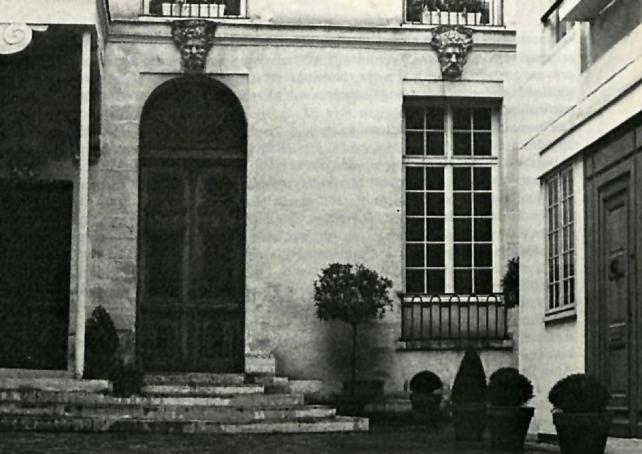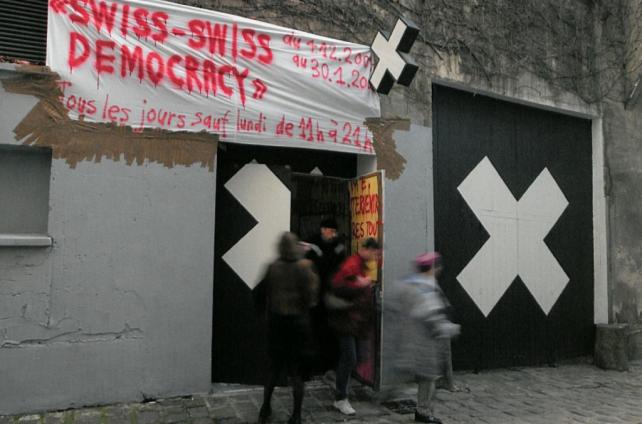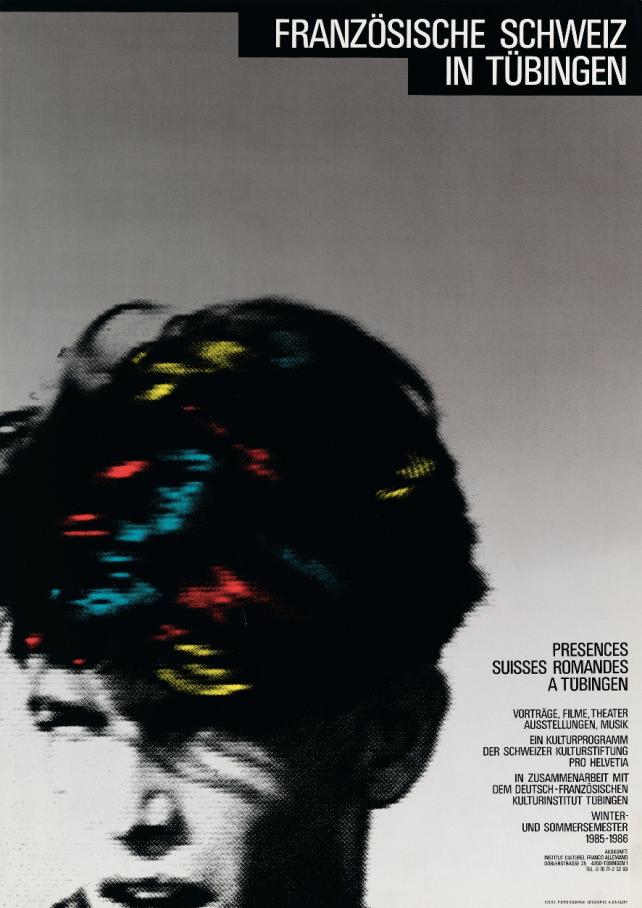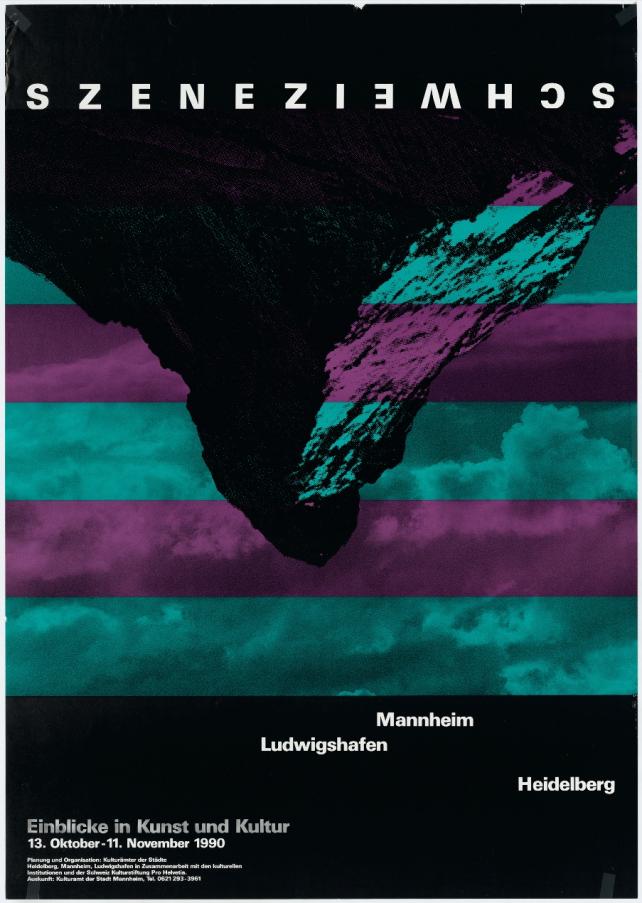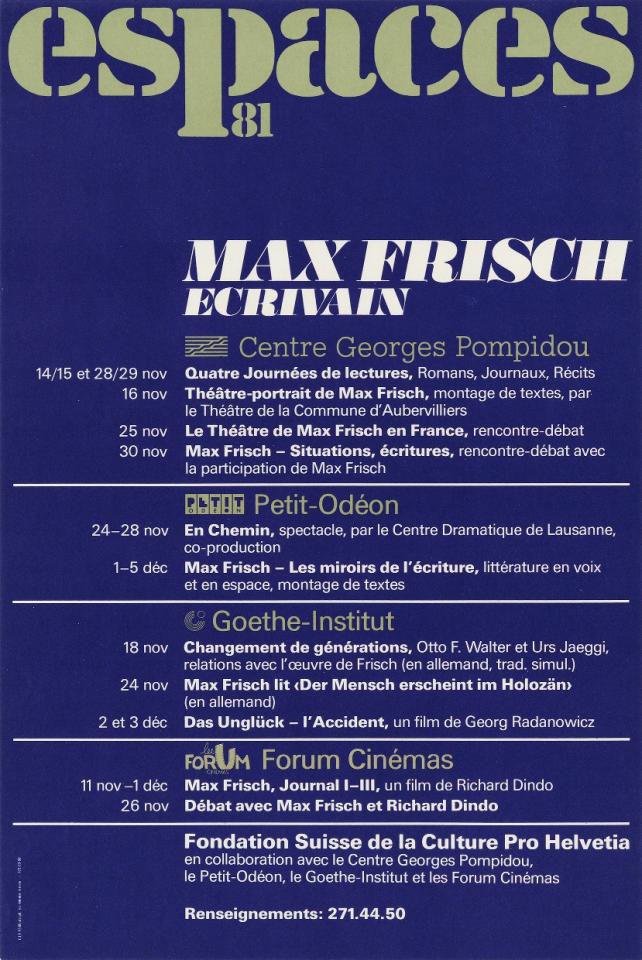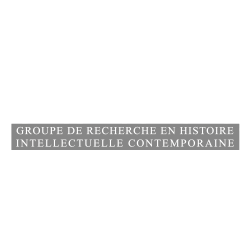From “Espaces” to Hirschhorn
In 1975, for the first time Pro Helvetia organised a three-month cultural programme in Paris. It included exhibitions, theatre performances, concerts, and film screenings. Consistent with the Foundation’s priorities in the 1970s, this innovative programme focused on contemporary art and the dialogue between Swiss and French artists. Most events took place on the premises of the Swiss National Tourist Board, put at Pro Helvetia’s disposal for the occasion. The programme marked a turning point in the Foundation’s history. Pro Helvetia’s decision to organise a major project abroad, for the first time without taking the diplomatic mission into account, caused antagonism. Consequently, the Swiss ambassador in Paris refused to attend the opening event of the programme in 1975.
However, the programme’s success lead to Pro Helvetia’s decision to institutionalise their cultural presence in Paris by continuing this manner of presenting Swiss art under the title Espaces, meant as a platform for current artistic trends in Switzerland. The first series of events took place in 1976 and gave rise to many innovative projects, especially in film.
In terms of Switzerland’s image, Espaces conveyed an unusual message, free from the usual clichés. In 1977, Le Figaro commented that well-behaved Switzerland had not hesitated to spice up the exhibitions, performances, screenings, and debates with a touch of folly, a few strokes of the extraordinary and a whiff of the avant-garde
.
In the early 1980s, this model programme was extended to other French cities, as well as to Germany and Austria, where it was renamed Szene Schweiz. In 1985, Espaces lead to the creation of the Centre culturel suisse, Paris, Pro Helvetia’s first permanent office abroad.
The Foundation’s abandonment of the principles of cultural representation in favour of a policy devoted to cultural exchange became a source of conflict regarding the Swiss presence abroad. An eminent example of this development was the outrage, caused by Thomas Hirschhorn’s exhibition Swiss-Swiss Democracy of 2004 at the Centre culturel suisse, in Paris. The controversial exposure of direct democracy, showing among other exhibits an actor pretending to urinate on a photograph of then National Council Christoph Blocher, scandalised not only the political establishment and led to a cut of one million Swiss Francs from Pro Helvetia’s funding. Several members of the National Council accused the Foundation of destroying the reputation of Swiss institutions abroad.
The scandal also initiated a fundamental debate about Pro Helvetia’s autonomy and the way Switzerland’s cultural image is supposed to be promoted abroad. On a wider level, the incident illustrated the conflicting aims of cultural exchange and image advertising. (tk)
Archives
AFS E9510.6 1991/51, Vol. 1022, 1085
Bibliography
Hauser, Claude ; Tanner, Jakob ; Seger, Bruno (éd) : Entre culture et politique. Pro Helvetia 1939 à 2009, Slatkine, Genève 2010

